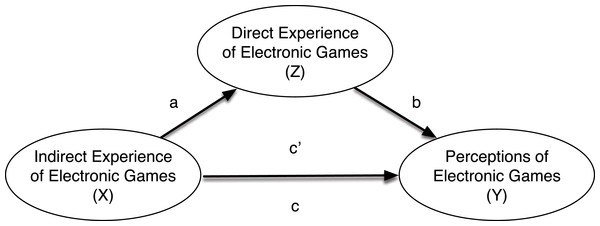
Theories regarding the influences of electronic games drive scientific study, popular debate, and public policy. The fractious interchanges among parents, pundits, and scholars hint at the rich phenomenological and psychological dynamics that underlie how people view digital technologies such as games. The current research applied Martin Heidegger's concept of interpretive frameworks (Heidegger, 1987) and Robert Zajonc's exposure-attitude hypothesis (Zajonc, 1968) to explore how attitudes towards technologies such as electronic games arise. Three studies drew on representative cohorts of American and British adults and evaluated how direct and indirect experiences with games shape how they are seen. Results indicated this approach was fruitful: negative attitudes and beliefs linking games to real-world violence were prominent among those with little direct exposure to electronic gaming contexts, whereas those who played games and reported doing so with their children tended to evaluate gaming more positively. Further findings indicated direct experience tended to inform the accuracy of beliefs about the effects of digital technology, as those who had played were more likely to believe that which is empirically known about game effects. Results are discussed with respect to ongoing debates regarding gaming and broader applications of this approach to understand the psychological dynamics of adapting to technological advances.
from #Medicine via ola Kala on Inoreader http://ift.tt/1SbdeIe
via
IFTTT
Δεν υπάρχουν σχόλια:
Δημοσίευση σχολίου
Σημείωση: Μόνο ένα μέλος αυτού του ιστολογίου μπορεί να αναρτήσει σχόλιο.